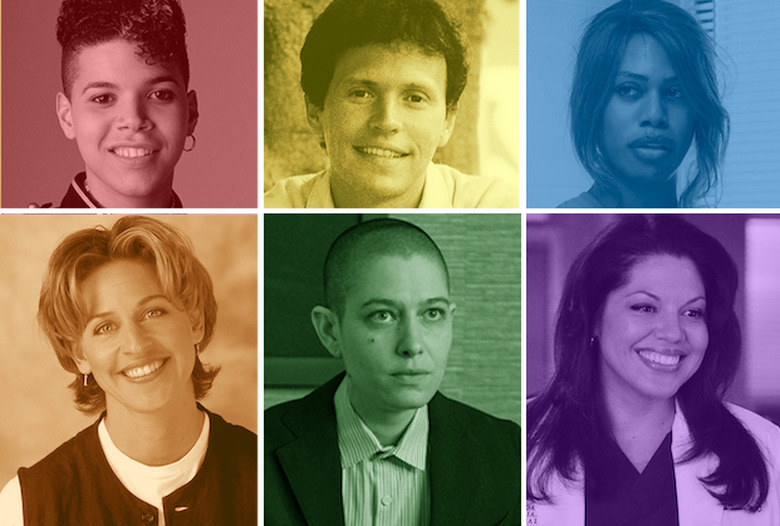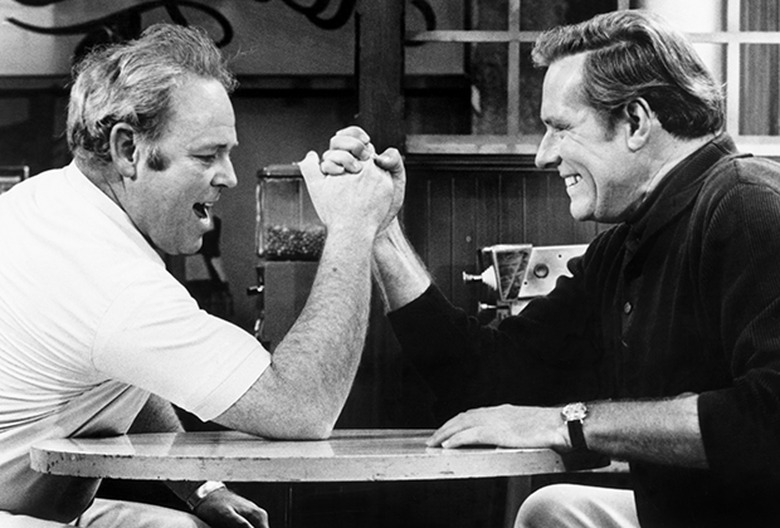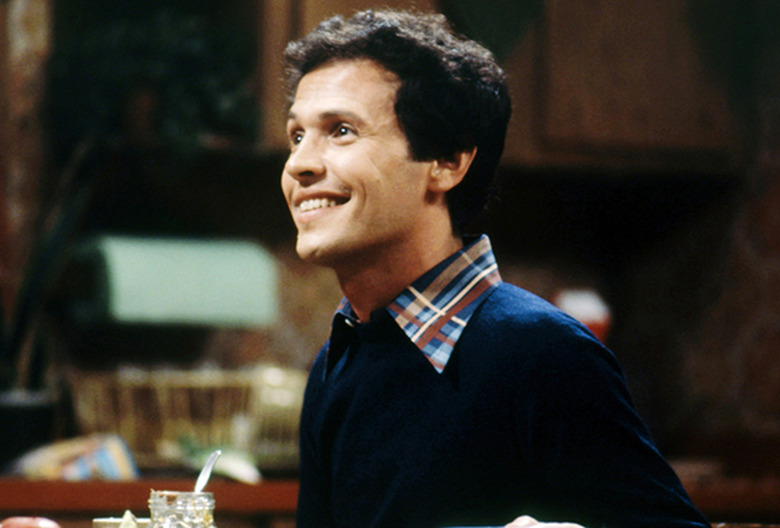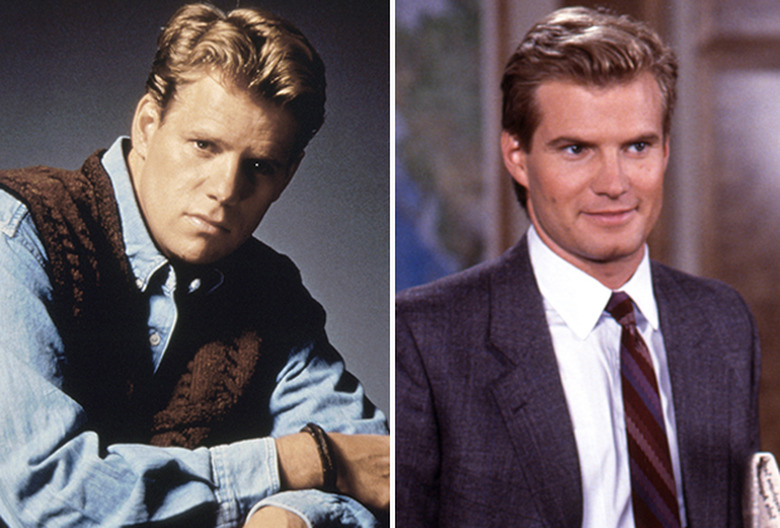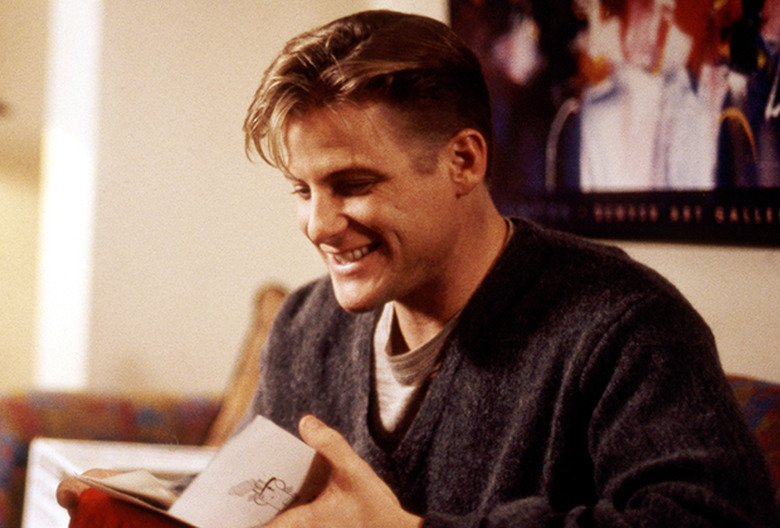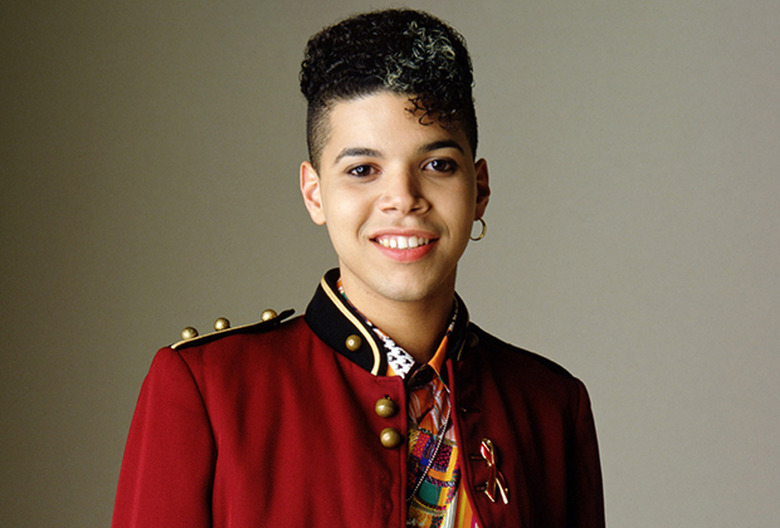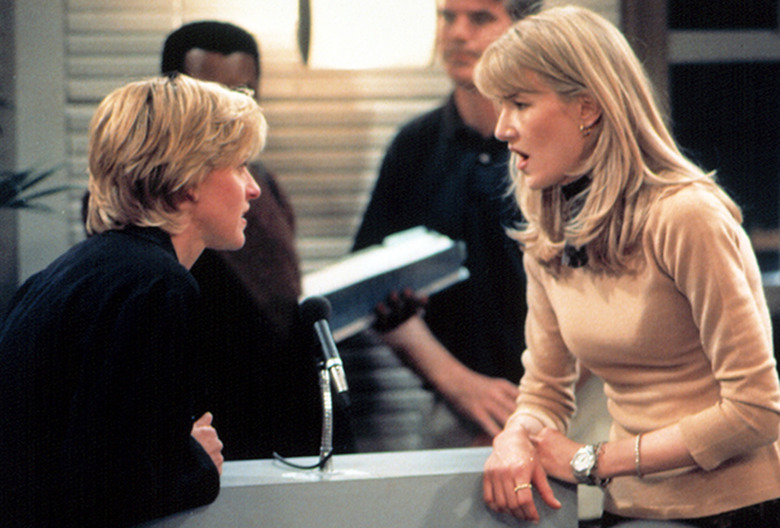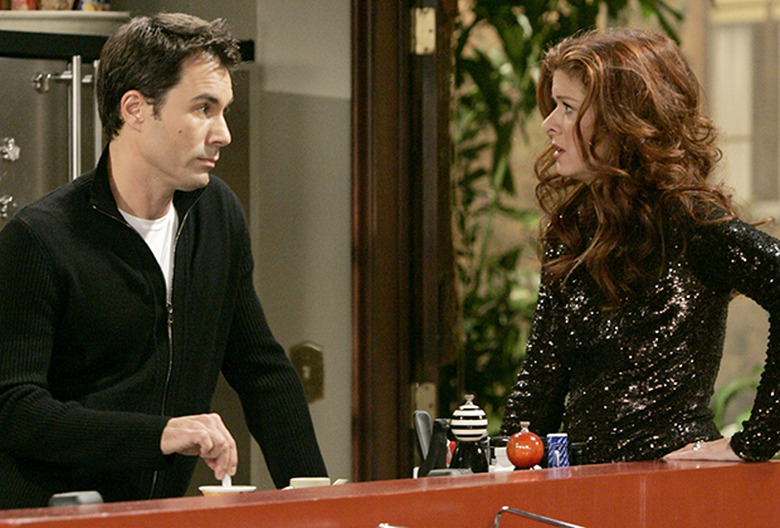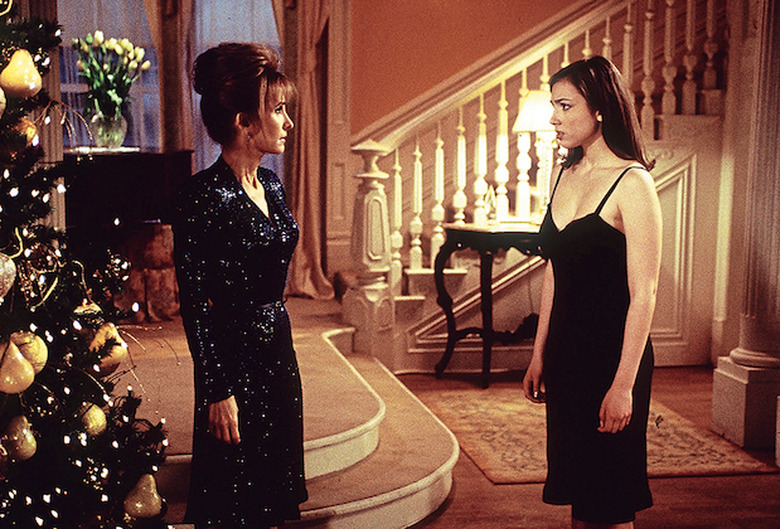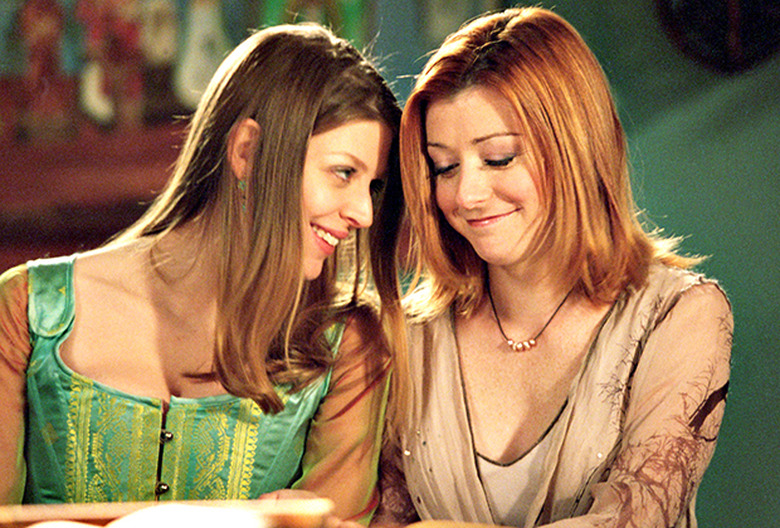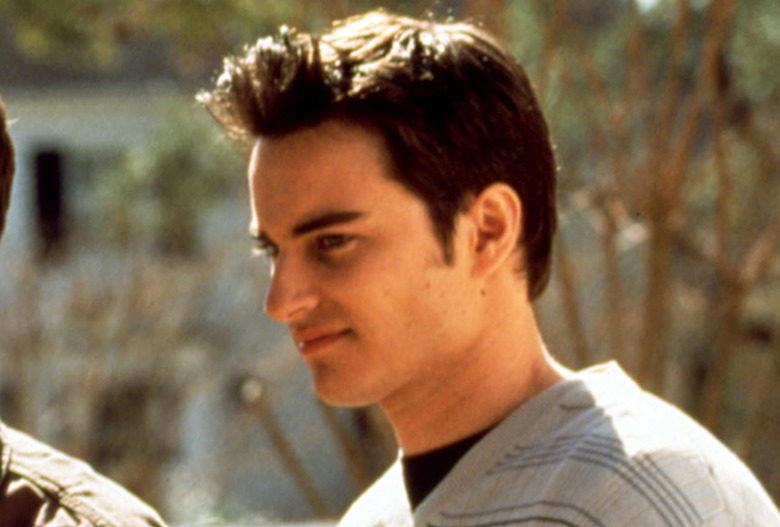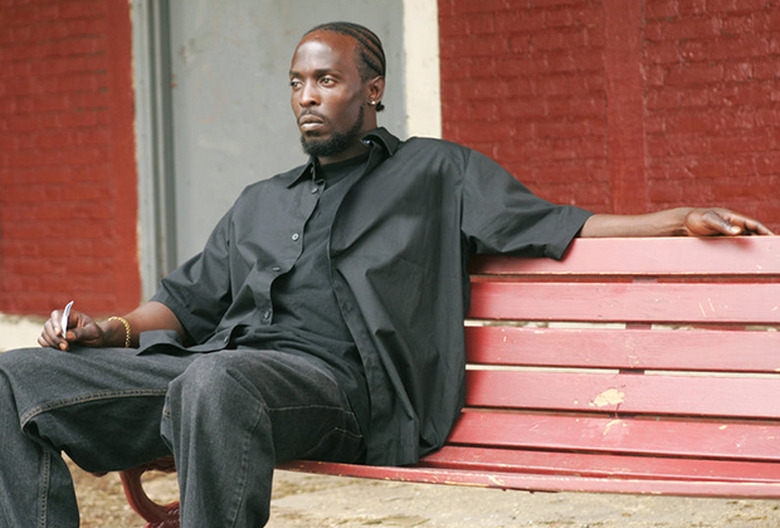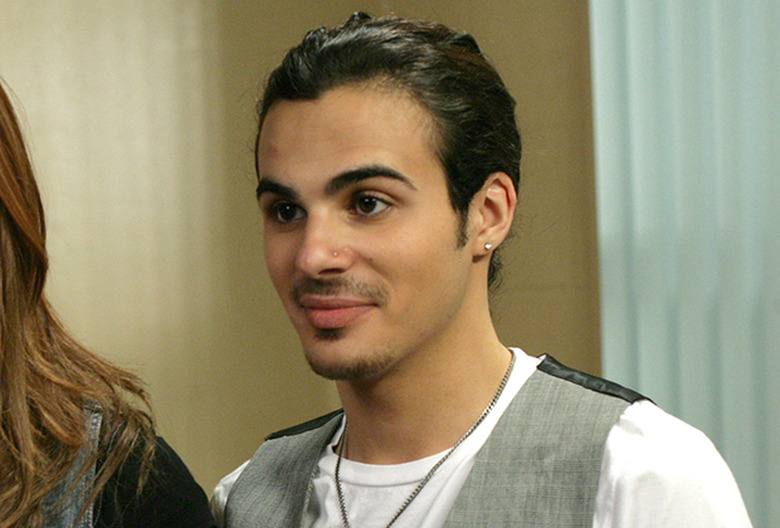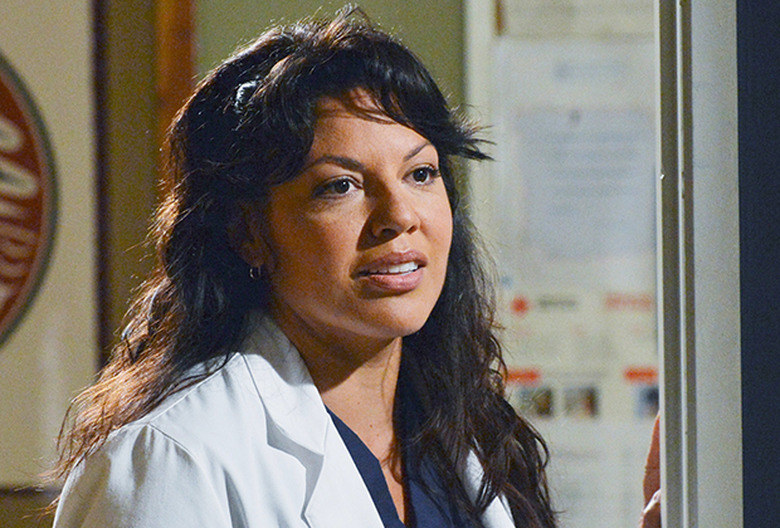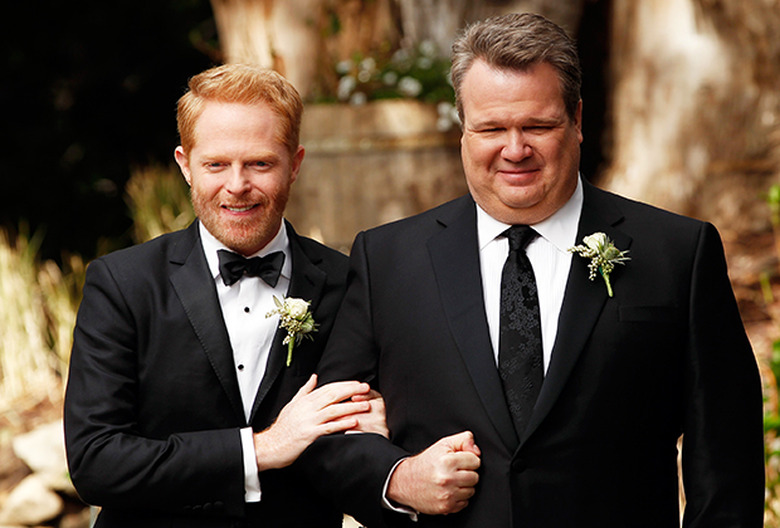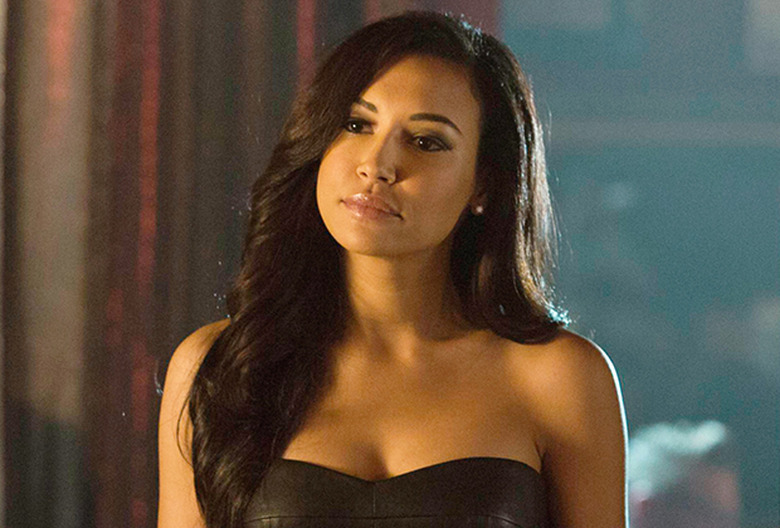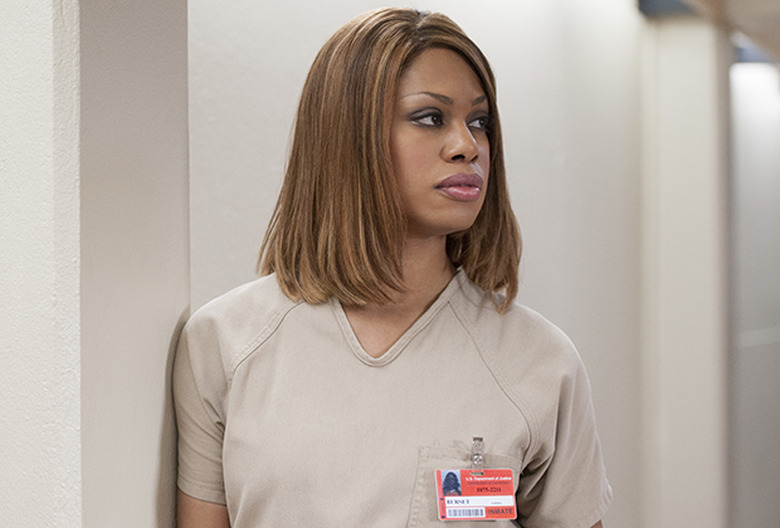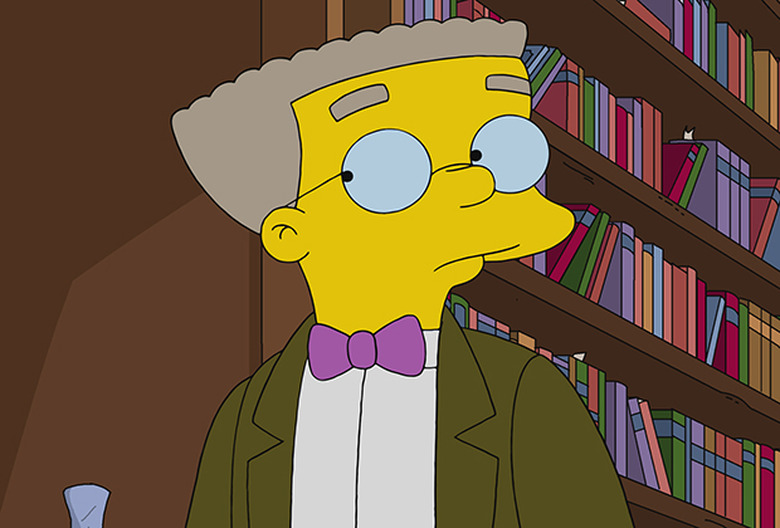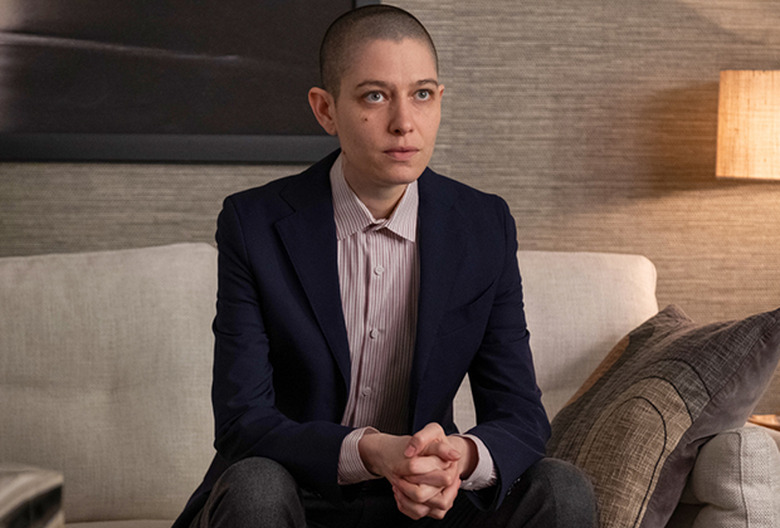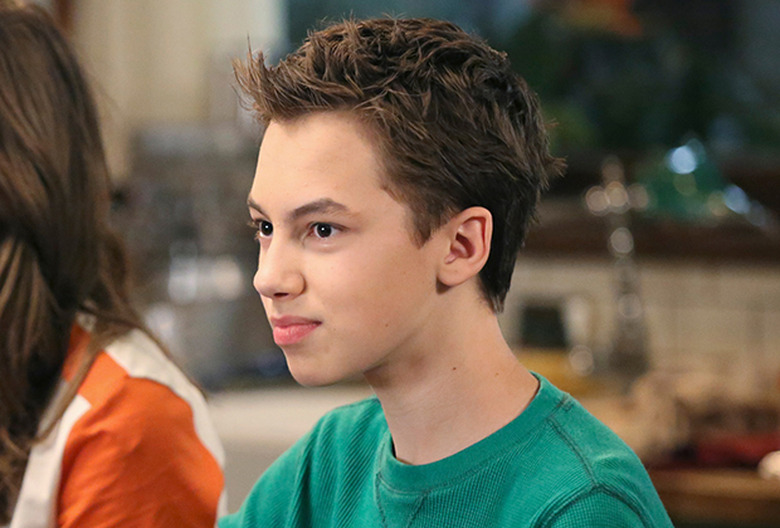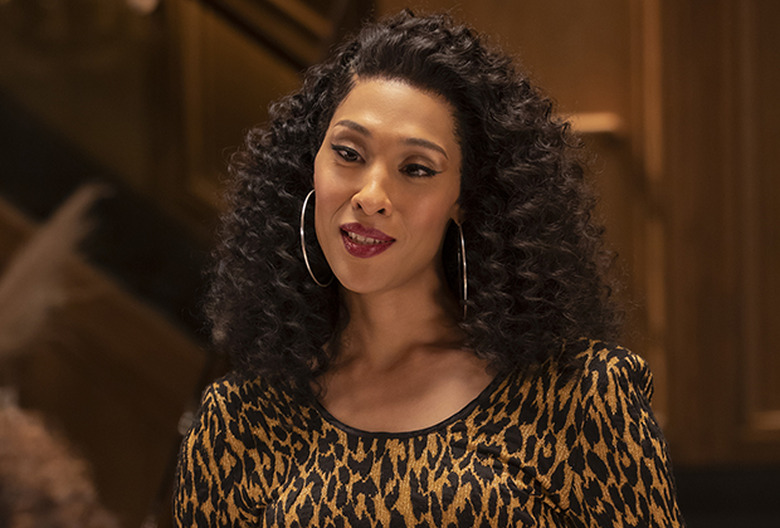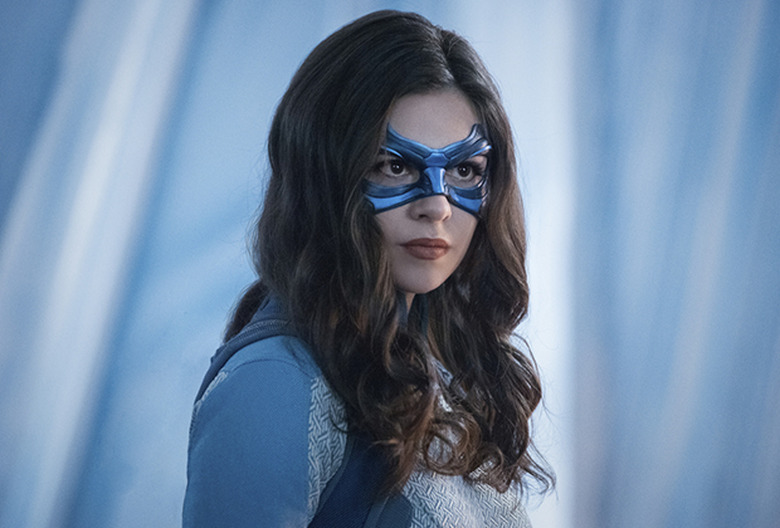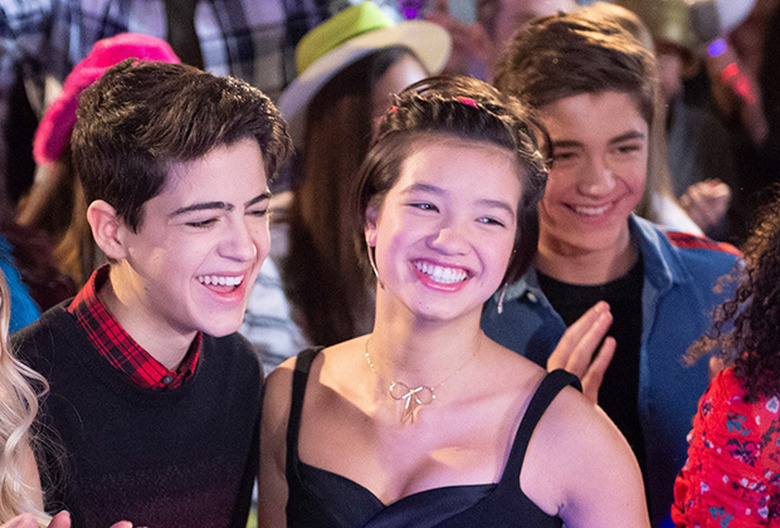22 LGBTQ TV Characters Who Made An Impact Over The Past 50 Years
With TV's LGBTQ inclusion hitting highs in recent years, TVLine is celebrating Pride Month 2021 with a look at many of the characters who walked so that the movement toward better representation could eventually run.
But to be clear, there were many stumbles during those early years, as gay TV characters were quietly weaved into stories and met with decidedly mixed results.

Vincent Schiavelli (center) with Joe Hamer and Bill Fiore in 'The Corner Bar' (Courtesy of Everett Collection)
It was 49 years ago this month that the first recurring gay character on American television made his debut — set designer Peter Panama on the little-known ABC sitcom The Corner Bar. Played by Vincent Schiavelli (Fast Times at Ridgemont High, Ghost), Peter was met with derision by, among others, the Gay Activists Alliance, which took issue with the character's flamboyance. The sitcom's producer responded by... changing up the cast for Season 2, minus Schiavelli's Peter.
Not a teaching moment.
Years later, ABC's Soap became the first U.S. sitcom to feature an openly gay lead character, though Billy Crystal's Jodie Dallas drew similar criticism. The difference this time was that those voices were heard, and Jodie was reworked to be a more accurate, and positive, portrayal.
And just like that, progress was made, very (very) slowly but surely leading to the rich, inclusive TV landscape we have today, where Billy Porter can win an Emmy for playing an HIV-positive ball emcee.
TV's inclusion of LGBTQ characters hit an all-time high — 10.1 percent of broadcast-TV's series regular characters — as recently as November 2019, before the pandemic played havoc with schedules. The number of transgender characters is on the rise. Racial diversity among LGBTQ characters has increased. But amid such gains, there is also the fact that The CW's Batwoman is currently the only broadcast show with an LGBTQ lead character.
But navigating highs and lows has been the name of the LGBTQ inclusion game for five decades, as seen in our look back at 22 characters who took small steps forward (and occasional steps back), but over time accomplished great leaps.
Again, this is not a round-up of every LGBTQ TV character ever, but instead a curated list of those whom we believe made significant impacts and/or were a part of meaningful "firsts" — feel free to weigh in with your own picks and how they specifically moved the inclusion needle!
Steve, All in the Family
Five episodes into All in The Family's nine-season run, and nearly three decades before Will & Grace arrived on the scene, series creator/social trailblazer Norman Lear already had LGBTQ representation on the brain when he introduced America's first gay sitcom character in the form of Archie's old friend Steve (played by the late Phil Carey). In the 1971 episode, co-penned by Lear and Burt Styler, raging bigot Archie was forced to reckon with his preconceived notions about homosexuality (not only was Steve a former linebacker, but, like Archie, he was a staunch conservative!). Similarly, viewers saw in Steve a gay man that was neither stereotypical nor ashamed of his identity.
Jodie Dallas, Soap
As one of the first openly gay main characters on an American TV show, Jodie (played by Billy Crystal) drew fire from all sides. Religious groups took umbrage with the ABC sitcom's inclusion of (among other topics) a gay character, while LGBTQ organizations were concerned about the portrayal being stereotypical and/or conflated with transsexualism, based on the scripts for early episodes. "I felt that [criticism], and we made him more real," Crystal said in a 2018 interview. Recalling a network poll that showed viewers wanted Jodie to be a father to the baby he sired via a one-night stand, Crystal said, "I thought that was the victory. That was the big thing. They trusted a gay man with a child.... I was really proud of what we did on the show."
Steven Carrington, Dynasty
Though Blake's second-oldest child was touted as the first openly gay main character in a primetime drama, the handling of Steven's sexuality — largely framed as a struggle, and a trait he often had to conceal — was joyless and imperfect to a point that original portrayer Al Corley vacated the role. (Dynasty co-creator Esther Shapiro, in her defense, insisted to Esquire that Steven "was, is, and always will be gay.") Succeeding Corley for much of the ABC sudser's run was Jack Coleman, who told TV Guide Magazine in 2006 that while the role "was quite daring at that time," Steven "was so timid by today's standards, especially looking at what's on cable, with The L Word, Queer as Folk.... Dynasty now seems unbelievably quaint."
Matt Fielding, Melrose Place
The Fox sudser may have done Doug Savant's character dirty with that off-screen death in the final season, but Matt will still be remembered fondly as one of the first openly gay main characters on a network TV drama. Did most of the stories involving Matt's sexuality include some sort of gay bashing or discrimination? Sure. Did the camera cut away from his only kiss with another man, over the network's fear of losing conservative viewers and advertisers? Also true. Still, this was considered progress in 1992.
Rickie Vasquez, My So-Called Life
Wilson Cruz, who later would go on to play Star Trek: Discovery's Culber, got his start as Enrique "Rickie" Vasquez in the one-season, cult-hit ABC drama. Rickie provided an unapologetically colorful and caring presence as his perplexed pal Angela navigated her high school's social circles, but Cruz's portrayal went even deeper, with storylines about homophobia and abuse within Rickie's own family. In addition, Cruz made history as the first openly gay actor to play an openly gay character on network television.
Ellen Morgan, Ellen
When Ellen Morgan came out in the April 30, 1997 episode of ABC's Ellen (pictured above), she became the first-ever gay lead character in a primetime sitcom. As such, she didn't just move the LGBTQ visibility needle — she completely reset it. The fact that the onscreen development paralleled portrayer/exec producer Ellen DeGeneres' own real-life coming out only drew more attention to the historic moment, leading 42 million viewers to tune in to the groundbreaking, Emmy-winning episode. In 2017, on the occasion of the installment's 20th anniversary, Oprah Winfrey — who guest-starred in "The Puppy Episode" as Ellen's shrink — declared to DeGeneres, "You are responsible for so much change. You were the bravest woman ever." Yep, she's right.
Will Truman, Will & Grace
Before NBC's bawdy hit sitcom debuted in 1998, the interior lives of gay characters were seldom explored, if brushed up against at all. But Eric McCormack's quippy lawyer, and all of his romantic highs and lows, was front and center. Plus, Will wasn't a stereotype; his restrained (or "boring," as Jack might put it) demeanor proved that gay characters didn't need to be outrageous to get the spotlight. Will & Grace in its heyday made great strides for gay representation, and Will Truman — in his small, subtle way — helped nudge that progress forward, making it safe for gay men to play the "straight man," as it were.
Bianca Montgomery, All My Children
Though not daytime soaps' first gay character — AMC's own Lynn Carson (played by Donna Pescow) and One Life to Live's Billy Douglas (Ryan Phillippe) were among her predecessors — the daughter of none other than man-magnet Erica Kane (played by industry icon Susan Lucci) made the biggest real-world headlines when she came out as a lesbian in a pivotal 2000 storyline, and Emmy-winning portrayer Eden Riegel rose to and surpassed the challenge. "You cannot underestimate the power of Bianca being in homes across America every single day," GLAAD's executive director said years later. "So many gay characters we see on network television are not three-dimensional like Bianca."
Tara Maclay, Buffy the Vampire Slayer
Amber Benson's character is, alas, most commonly remembered for the unexpected and heartbreaking way she died — via a rogue bullet meant for Buffy — and the uproar it caused among many of the show's fans. The reason for that intense reaction, however, was because Tara's death brought an abrupt end to the sweet, satisfying (and, at the time of her death, recently rekindled) romance between her and the show's central witch, Willow, who hadn't realized that she herself was a lesbian until she met the shy, blonde spellcaster.
Jack McPhee, Dawson's Creek
It might now be difficult to believe, given how far LGBTQ representation has come in recent years, but when Kerr Smith's character kissed his unrequited crush Ethan (Adam Kaufman) in the WB drama's Season 3 finale, it marked the very first "passionate" lip-lock between two men on broadcast TV. While the importance of that milestone — which took place 21 years ago, in May 2000 — cannot be overstated, Jack McPhee was also just a relatable teen coming to terms with his true self on one of TV's most popular high school dramas, making him a role model and a source of hope for those young viewers who were also grappling with their own sexuality.
Omar Little, The Wire
TV had never before seen a character like Omar Little (Michael Kenneth Williams) and honestly, it has not since. That's because the acclaimed HBO drama's shotgun-wielding stickup man robbed corner boys and drug dealers for five seasons, but did so using a code. He never hurt children, nor the elderly, and he even fed hungry kids and tried to look out for his community's most vulnerable. Omar was also openly and unapologetically gay, and he loved and honored his boyfriend, Brandon. When dealers tortured and killed Brandon to punish him for robbing them — and to send a message to Omar — Williams' character avenged Brandon's death by helping to kill Stringer Bell.
Marco Del Rossi, Degrassi: The Next Generation
There was no coming-of-age story that Degrassi was afraid to tell, including Marco's struggle with his sexuality when he joined the Canadian teen drama in Season 2. As painful and confusing as Marco's journey often was, it was also a necessary reminder for young viewers that self-discovery can be non-linear and messy. To that end, Marco's storyline involved an ill-fated (but illuminating) heterosexual relationship with Ellie Nash, a difficult experience coming out to his father, the rush of his first reciprocated crush on a boy and other relatable highs and lows of adolescent self-exploration.
Callie Torres, Grey's Anatomy
For all of television's progress with LGBTQ representation, bisexuality still isn't seen very often — and when it is, it's often handled ignorantly, either turned into a punchline or entirely misunderstood. Callie, however, was a refreshing outlier: a proudly bisexual character whose interest in both men and women wasn't played for gratuitous drama or laughs. "So I'm bisexual. So what?" she memorably told Meredith. "It's a thing, and it's real. It's called LGBTQ for a reason. There's a B in there, and it doesn't mean 'badass.' OK, it kinda does, but it also means 'bi.'" And in Callie's case, the B definitely meant both.
Cam Tucker and Mitchell Pritchett, Modern Family
For 11 familial and funny seasons, Cam (Eric Stonestreet) and Mitchell (Jesse Tyler Ferguson) brought warmth and snark to ABC's stalwart sitcom. The pair started out as live-in boyfriends who adopted a child named Lily together and grew closer over time. And when they could wed, they did. Best of all, Mitchell and Cam defied stereotypes and normalized gay parenting and marriage in memorable and touching ways. Cam was also a non-Pritchett shoulder to lean on for Gloria and Phil, and Mitchell taught his dad Jay how to be more open-minded and loving. (Off-screen, Ferguson used his nuptials to break down social barriers, tying the knot with his boyfriend of two years, Justin Mikita. The two became fathers to a son in 2020.)
Santana Lopez, Glee
Few characters on Fox's musical dramedy were as well-developed and fully realized as Santana, who evolved from a quintessential mean girl to a complex, beloved gay character during the show's six-season run. Santana's arc hit so many beats that were important and influential for LGBTQ viewers: Her relationship with Brittany was among TV's sweetest, most sincere portrayals of young love (regardless of sexuality); like many gay teenagers, she was confronted with intolerance from her closest family after coming out; and even as Santana's sexuality remained a core facet of her character, she wasn't pigeonholed into exclusively Very Special Storylines. "Santana Lopez was groundbreaking for closeted queer girls, like I was at the time," Demi Lovato said in a recent tribute to Santana's late portrayer, Naya Rivera. "Her ambition and accomplishments inspired Latina women all over the world."
Sophia Burset, Orange Is the New Black
Before Amazon's Transparent came along, Laverne Cox was opening people's eyes to the transgender community on Netflix's prison dramedy. Sophia was, and remains, among the most dynamic transgender characters TV has ever seen — and in real life, Cox became the first transgender person to be nominated for a Primetime Emmy in any acting category. Viewers witnessed Sophia go to hell and back, as she railed against a reduction in her hormone dosage and endured a stint in solitary. But she came out even stronger and went on to open her own hair salon once she left Litchfield. In a 2020 interview with TV Insider, Cox stressed just how important it was for audiences to see a Black trans woman achieve her dream. "The trans people in real life need to see it. Non-trans people in real life need to see that," she said. "If we can see it on-screen, then we can begin to imagine it. That's what Sophia's evolution and her ending... means for me."
Waylon Smithers, Jr., The Simpsons
Queer characters have become commonplace in modern Western animation, but that wasn't the case when Mr. Burns' lovesick assistant sauntered onto the screen in 1990. And although Smithers wouldn't officially come out for another 26 years (the journey!), viewers were never left to wonder about his sexuality. From vacationing on a gay cruise to serving as the president of the Malibu Stacy Fan Club, Smithers has never been anything other than himself — and he's got the growing list of ex-boyfriends to prove it.
Taylor Mason, Billions
When Season 2 aimed to give Damian Lewis' Bobby Axelrod a mentee of sorts, the Showtime drama wound up introducing TV's first series-regular, gender non-binary character, in intern Taylor Mason. "Gender has become something that we're all learning more about and grappling with," co-creator Brian Koppelman said at the time. "So it seemed really worth doing." Taylor's portrayer, Asia Kate Dillon — being gender non-binary themself — felt "very proud to represent something on television that hasn't been represented before. I know it would have meant a lot to me, as a younger person, especially. Visibility and education are so important — particularly now in the face of [President Donald Trump's] administration."
Jude Foster, The Fosters
The ABC Family/Freeform drama — about two married moms raising their family of biological, adopted and foster children — was no stranger to excellent LGBTQ storylines. But with the character of Jude (played by Hayden Byerly), the series was able to truthfully mine a subject that is rarely portrayed on television: preteen sexuality and all the confusion and questioning that comes with it. Jude's exploration of his feelings for his friend Connor (Gavin MacIntosh) was a vulnerable and bold journey that culminated in a groundbreaking moment in 2017: the youngest same-sex kiss on TV, when both characters were 13 years old. Although just a middle schooler, Jude was far ahead of the curve when it came to accepting oneself.
Blanca Rodriguez, Pose
Yes, Mj Rodriguez's character on the FX drama broke new ground as one of television's first transgender lead characters, and as part of the largest transgender acting ensemble ever assembled on TV. But she isn't just a historical footnote; she's a living, breathing testament to LGBTQ progress. A fiercely protective house mother and nurturing caretaker, Blanca ranks right up there with TV's best moms, and Rodriguez's endlessly empathetic portrayal makes Blanca's fight for equality and respect something for which everyone can root.
Nia Nal, Supergirl
As TV's first transgender superhero, busting bad guys and breaking barriers is all in a day's work for Nia aka Dreamer, who was also the first non-cisgender woman in her family to inherit superpowers. Gifted with visions of the future, she fights for those who cannot fight for themselves, standing up to prejudice and discrimination at every turn. As she told the world during Dreamer's official coming out interview, "The greatest gift we can give each other is our authentic selves, and sharing that — sharing our truth — is what will make us strong."
Cyrus Goodman, Andi Mack
Nearly a decade after High School Musical 3 attempted to pass Ryan off as straight, Disney Channel introduced its first openly gay main character in Cyrus, one of Andi's best friends (played by Joshua Rush, above left). Series creator Terri Minsky took great care in crafting the network's first-of-its-kind coming out story, consulting child development experts throughout the writing process. "Andi Mack is a story about tweens figuring out who they are," Disney Channel said in October 2017. "Everyone involved in the show takes great care in ensuring that it's appropriate for all audiences and sends a powerful message about inclusion and respect for humanity."
